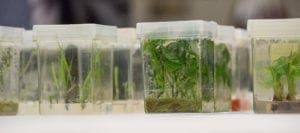Cannabis Testing Equipment & Consumer Protection
By: Priorclave North America
Category: Lab Innovation
Just a few years ago, “cannabis testing equipment” was something a wry college freshman would call a bong. Today, these are regular offerings from every biological supply company.
The promise of cannabis legalization—that it would invariably lead to regulation and consumers assured of clean, potent, safe products—has certainly borne fruit. As laws shift toward legalization, the industry has responded to consumer demands. State regulation has expanded to include much-needed testing. Correspondingly, specialty labs are becoming more adept at quickly and reliably determining product safety and potentcy.
Avoiding Adulterants
Many cannabis consumers are treating illness or injury, so ensuring their products are both efficacious and clean is obviously important. States stringently enforce rigorous and accurate laboratory testing, jump in quickly when they see sloppy procedures, and take decisive action when evidence shows that a lab lacks integrity.
In these early days of legal cannabis, we’ve already seen how lax standards or procedures can injure and kill: In late 2019 and early 2020 when people across the US suffered illness, disease, and even death as a consequence of cannabis oil cartridges that had been adulterated with vitamin E acetate.
Yes, each state regulates cannabis differently. But they largely seem to agree that testing should at least include potency, chemical solvents, and residues like pesticides. Several, however, go beyond that to include testing for various types of microbes, including mold. Most of the available methods for microbial testing—and all of the most user-friendly techniques—require a good autoclave.
The Right Cannabis Testing Equipment to Meet Shifting Expectations
A reliable autoclave is good for more than just testing. For example, autoclaves are essential for successful tissue culture cannabis cloning, which requires “a true clean-room operation.”

tissue culture is just one reason to invest in a reliable autoclaves
But which autoclave do you want to add to your supply of cannabis testing equipment? Many autoclaves for sale in the United States are repurposed medical-grade units. But while these would be fine for some simple sterilization processes, they often fall short in lab applications, and might not withstand the volume that cannabis businesses require.
If you’re considering tissue culture propagation, you’ll really want a research-grade machine. Most cannabis labs favor a top-loading 100L steam autoclave, or larger. (That said, smaller labs with limited space might squeak by with a 60L tabletop model.) These are good choices because they are extremely energy/cost efficient, take up little space in the lab, but still offer all of the advantages of a multi-purpose laboratory autoclave (for example, their terrific for processing growth media or disposing of waste materials and batches that fail testing) .
If you’re investing in an autoclave, you’re also going to want to check for an ASME stamp. Going without could be a risk: Even if the device is perfectly safe, running with a non-ASME autoclave can run afoul of the fine print in your insurance, as well as local regulations. For example, all but seven states currently require testing labs to use ASME-stamped autoclaves. Cannabis businesses hoping to expand beyond a single location—or even just stay on the safe side of ever-changing regulations—should seriously consider ASME-stamped autoclave sterilizers when setting up a new lab.

